COVID-19 Update: Friday, September 18
The following is the latest coronavirus information from Pennsylvania’s state government as of 1:30 p.m. on Friday, September 18.
 The Courts
The Courts
A federal court has ruled that parts of Governor Wolf’s orders closing down aspects of life and commerce in the state in response to the COVID-19 emergency were unconstitutional. Find the entire court decision in this Pittsburgh Tribune-Review article that also summarizes the decision, its implications, and reactions to it.
Governor Wolf
Governor Wolf called on the General Assembly to provide an additional $225 million in CARES Act funding for the state’s COVID-19 hazard pay program to support front-line workers risking their health to continue working in life-sustaining industries during the COVID-19 pandemic.
Department of Health
 The Department of Health has issued guidance for individuals who have had close contact with someone who has been diagnosed with COVID-19.
The Department of Health has issued guidance for individuals who have had close contact with someone who has been diagnosed with COVID-19.- Following up on its guidance released last week on compassionate care access to skilled nursing facilities, the Department of Health has posted a fact sheet on compassionate care, a comparison between regular visiting and compassionate care visiting, and an infographic showing these differences.
- The Department of Health issued a health alert providing recommendations and considerations for point-of-care antigen testing in nursing homes.
Department of Health – by the numbers
- This week’s joint news release from Governor Wolf and the Department of Health revealed that during the week of September 4 to September 10 the number of new COVID-19 cases fell 8.9 percent but the state-wide rate of positive tests rose from 4.0 to 4.2 percent.
- Counties with especially high positivity rates are Columbia (13.4 percent), Indiana (10.7 percent), Juniata (10.3 percent), and Centre (9.2 percent), and these are also the counties the state believes are experiencing the highest rate of community transmission.
- For the past week the number of daily cases has differed significantly from day to day, from some of the state’s highest to some of its lowest numbers in the past six weeks.
- The continued high numbers are driven in large part by major increases in the number of young people between the ages of 19 and 24 who are contracting COVID-19. In southeastern Pennsylvania, for example, nearly five percent of COVID-19 cases fell in this age group in April; in September so far, that number has risen to nearly 32 percent. The trends are similar in other parts of the state except in the north central part of the state, where the proportion of 19-24-year-olds contracting COVID-19 rose from seven percent of cases in April to 71 percent this month so far, and in northeastern Pennsylvania, where the number of people in this age group diagnosed with COVID-19 rose from six percent of that region’s total in April to 39 percent in September.
- Despite this, the number of Pennsylvanians currently hospitalized with COVID-19 and the number of such patients breathing with the help of a ventilator are lower than they have been since the spring of 2020.
- More than 10,200 health care workers in the state have contracted COVID-19.
- 20 percent of the beds in Pennsylvania’s acute-care hospitals are currently unoccupied, as are 25 percent of adult ICU beds, 16 percent of pediatric ICU beds, 38 percent of pediatric beds, and 40 percent of airborne isolation rooms.
Resources to Consult
Pennsylvania Department of Human Services
Pennsylvania Department of Health
Centers for Disease Control and Prevention
 The Department of State has
The Department of State has  Provider Relief Fund
Provider Relief Fund CMS has posted the document “
CMS has posted the document “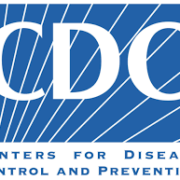 The CDC has updated its
The CDC has updated its 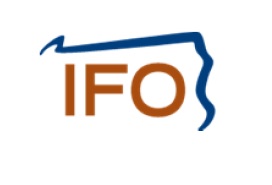 Independent Fiscal Office
Independent Fiscal Office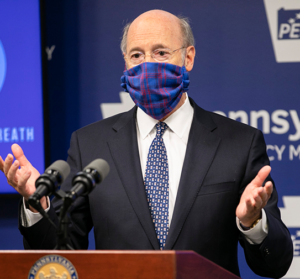 Governor Wolf has signed a second renewal of his 90-day disaster declaration for the COVID-19 pandemic. This declaration provides for increased support for state agencies involved in the continued response to the virus and recovery during reopening, including expediting supply procurement and lifting certain regulations to allow for efficient and effective mitigation. The disaster declaration also has facilitated waivers and extensions to support Pennsylvanians, Pennsylvania businesses, and Pennsylvania caregivers during the pandemic. Learn more from
Governor Wolf has signed a second renewal of his 90-day disaster declaration for the COVID-19 pandemic. This declaration provides for increased support for state agencies involved in the continued response to the virus and recovery during reopening, including expediting supply procurement and lifting certain regulations to allow for efficient and effective mitigation. The disaster declaration also has facilitated waivers and extensions to support Pennsylvanians, Pennsylvania businesses, and Pennsylvania caregivers during the pandemic. Learn more from 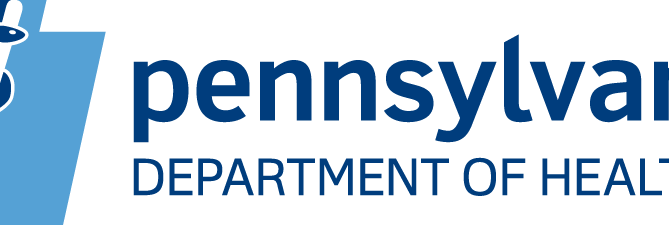
 Governor Wolf has presented his fall legislative agenda. Among his proposals, he called for $225 million for hazard pay for frontline workers; $10 million for a personal protective equipment reimbursement program for small businesses; and $250 million for child care for families with school-age children in need of care because of blended or remote in-person instruction models. Learn more about these and other aspects of the governor’s proposal
Governor Wolf has presented his fall legislative agenda. Among his proposals, he called for $225 million for hazard pay for frontline workers; $10 million for a personal protective equipment reimbursement program for small businesses; and $250 million for child care for families with school-age children in need of care because of blended or remote in-person instruction models. Learn more about these and other aspects of the governor’s proposal  The Department of Health has unveiled “CATE” (Community-Accessible Testing and Education”), a recreational vehicle that has been equipped as a mobile COVID-19 testing and education unit that will travel the state offering free COVID-19 tests and education in medically underserved communities in 16 counties. Established and operated by the organization Latino Connection, staffed by the Welsh Mountain Health Centers, and funded in part by the state, Highmark, and Independence Blue Cross, CATE has more than 30 stops scheduled during September, the first half of them in the Philadelphia area and then moving westward across the state. Appointments are not needed and CATE’s tests will be performed by the state’s lab in Exton, which is producing results in 24 to 48 hours. Learn more about CATE, its origins, and its scheduled stops in this Department of Health
The Department of Health has unveiled “CATE” (Community-Accessible Testing and Education”), a recreational vehicle that has been equipped as a mobile COVID-19 testing and education unit that will travel the state offering free COVID-19 tests and education in medically underserved communities in 16 counties. Established and operated by the organization Latino Connection, staffed by the Welsh Mountain Health Centers, and funded in part by the state, Highmark, and Independence Blue Cross, CATE has more than 30 stops scheduled during September, the first half of them in the Philadelphia area and then moving westward across the state. Appointments are not needed and CATE’s tests will be performed by the state’s lab in Exton, which is producing results in 24 to 48 hours. Learn more about CATE, its origins, and its scheduled stops in this Department of Health 

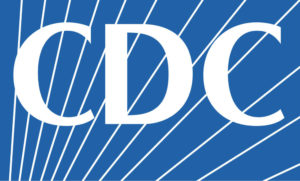
 The Wolf administration’s
The Wolf administration’s 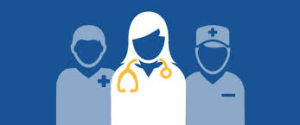 HHS announced that it will distribute $1.4 billion in CARES Act Provider Relief Fund grants to nearly 80 free-standing children’s hospitals. Qualifying children’s hospitals must be either an exempt hospital under CMS’s Medicare inpatient prospective payment system or be a HRSA-defined Children’s Hospital Graduate Medical Education facility. Eligible hospitals will receive 2.5 percent of their net revenue from patient care. Qualifying free-standing children’s hospitals will begin receiving grants next week. Learn more from this
HHS announced that it will distribute $1.4 billion in CARES Act Provider Relief Fund grants to nearly 80 free-standing children’s hospitals. Qualifying children’s hospitals must be either an exempt hospital under CMS’s Medicare inpatient prospective payment system or be a HRSA-defined Children’s Hospital Graduate Medical Education facility. Eligible hospitals will receive 2.5 percent of their net revenue from patient care. Qualifying free-standing children’s hospitals will begin receiving grants next week. Learn more from this  In a message to families in anticipation of a new school year, the Wolf administration stressed the importance of children receiving their required childhood vaccinations but reminded Pennsylvanians that the Department of Health has temporarily suspended its requirements for children’s immunizations for two months after the beginning of the school year or the beginning of enrollment in an early childhood education program. See the Wolf administration’s news release on this subject
In a message to families in anticipation of a new school year, the Wolf administration stressed the importance of children receiving their required childhood vaccinations but reminded Pennsylvanians that the Department of Health has temporarily suspended its requirements for children’s immunizations for two months after the beginning of the school year or the beginning of enrollment in an early childhood education program. See the Wolf administration’s news release on this subject